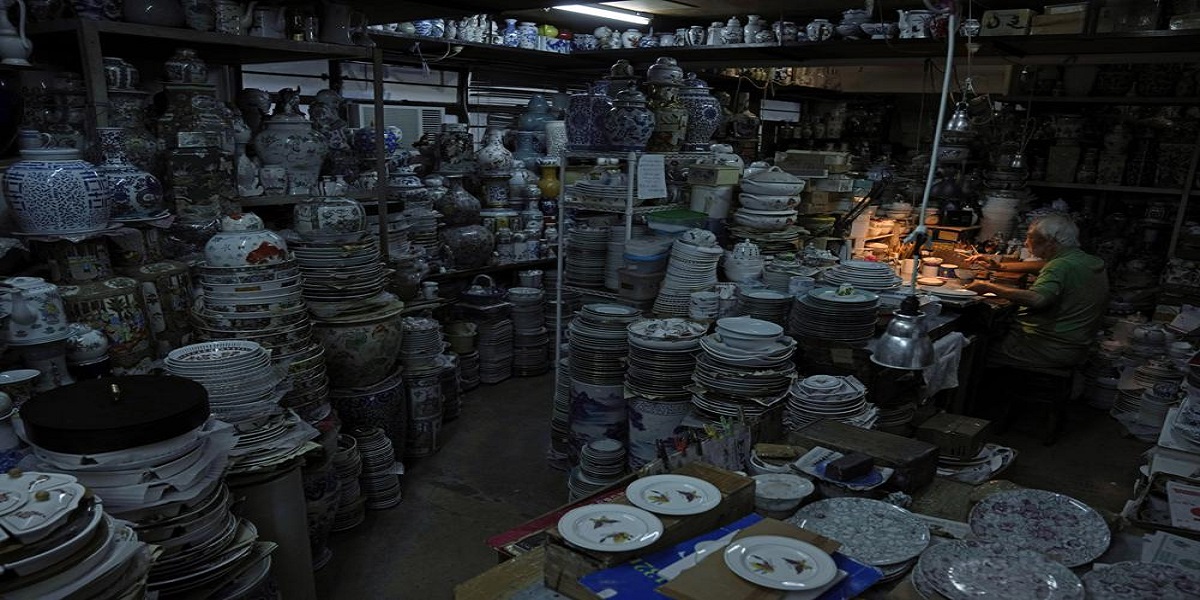- The last hand-painted porcelain factory in Hong Kong, Yuet Tung China Works, is filled with piles of dishes that have all been meticulously hand-decorated.
- One of the few individuals in Hong Kong who has mastered the conventional method of painting “guangcai,” is Joseph Tso.
- It is a dying art in this contemporary metropolis.
The last hand-painted porcelain factory in Hong Kong, Yuet Tung China Works, is filled with piles of dishes that have all been meticulously hand-decorated with bright designs of flowers, fruits, and animals.
One of the few individuals in Hong Kong who has mastered the conventional method of painting “guangcai,” or Canton porcelain, is Joseph Tso, the third-generation proprietor of the firm, together with his tiny staff.
As fewer young people are ready to invest the time and effort necessary to perfect the trade or to work in the industry full-time, it is a dying art in this contemporary metropolis.
Labor-intensive businesses are not fit for Hong Kong’s commercial environment, according to Tso. “The traditional handicrafts sector in Hong Kong is steadily diminishing. It’ll vanish eventually.”
Guangcai, which originates in the neighboring Chinese city of Guangzhou, is distinguished by an overglaze technique in which the artist draws a design on white porcelain, fills it in with color using fine brushes, and then fires the object in a kiln.
Read more: Hong Kong arrests 5 for sedition before China rule anniversary
The factory was started in Kowloon City, Hong Kong, by Tso’s grandpa in 1928. Over time, it gained notoriety and became renowned for its fine craftsmanship and personalized plates.
The factory is well-known for its Canton rose porcelain that is decorated with the “Western red” color “xihong.” Lead oxide, quartz, and gold dust are among its constituents.
From the 1960s to the 1980s, Tso stated, “Hong Kong’s export sector was expanding, and many renowned department stores came to buy merchandise.” We would receive business from (American) department stores through foreign trade companies.
For overseas customers, the manufacturer occasionally paints family crests on crockery.
Before Hong Kong was returned to China in 1997, Chris Patten, the final British governor of the territory, visited Yuet Tung China Works and bought some porcelain before leaving for Britain.
Read more: At sea, Hong Kong famous Jumbo Floating Restaurant Sinks
Yim Wai-wai, the founding president of The Hong Kong Ceramics Research Society, stated that the factory is a significant element of Hong Kong’s history.
According to Yim, “the porcelain factory breathed at the same rate as Hong Kong’s development.” It would be an irreparable loss if it disappeared.





















